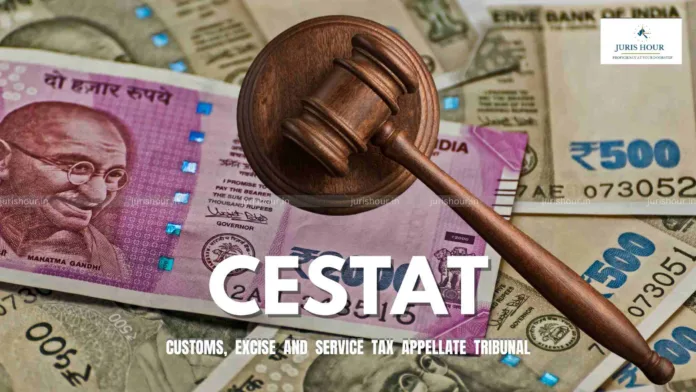The Delhi Bench of Customs, Excise and Service Tax Appellate Tribunal (CESTAT) has held that if tax has been excess paid and not recovered from another person, refund of it cannot be denied on the ground that it has been shown as expenditure in the balance sheet.
The bench of Binu Tamta (Judicial Member) has observed that the deposit “under protest‟ was made against the anticipated liability and which liability though fructified by the respondent was set aside by the CESTAT and which order attained finality.
The appellant/assessee had received Investment Subsidy against Entitlement Certificate sanctioned under the Rajasthan Investment Promotion Policy – 2010 , which was adjusted towards payment of VAT and CST in their returns during the period January, 2014 to June, 2015.
The Department had raised a demand of central excise duty on the investment subsidy. The issue was finally decided by the Tribunal setting aside the demand of duty and penalty with consequential benefits. The appellant filed the refund claim, which was sanctioned to them.
The appellant had also filed the refund claim of Rs.14,34,293 for the amount of excise duty paid on VAT by them at their own risk for the subsequent period RG-23 A Part-II Entry No.451 dated 23.12.2015, 693 dated 30.11.2016, 939 dated 28.02.2017 and through challan no.00436 dated 08.06.2017 and 00367 dated 08.12.2016.
The Adjudicating Authority rejected the refund claim vide Order dated 25.10.2019 on the ground of limitation. The appeal filed by the appellant was allowed by way of remand observing that the limitation clause of filing refund claim within one year is not applicable. Since the issue of unjust enrichment has not been particularly examined, the case was remanded to the Adjudicating Authority. On remand, the Adjudicating Authority sanctioned the refund claim.
The Department preferred an appeal before the Commissioner (Appeals), inter alia, submitting that the Adjudicating Authority had not examined the books of accounts, wherein the assessee had shown the duty paid suo moto/under protest on the subsidy received under RIPS as “expenses‟ incurred by them and relied on the decision in the case of Hindustan Petroleum Corporation Ltd. Vs. CCE, Mumbai-II, wherein it was held that refund claim was not reflected in the books of accounts as receivables.
The Commissioner (Appeals) observed that once the amount of tax paid has been booked as “expenses‟ in Profit & Loss Accounts, it automatically shows that incidence of duty has been passed on to the customers. The present appeal has been filed before this Tribunal challenging the said order.
The tribunal held that once the supplies have already been made, any amount paid thereafter, as tax or deposit, the burden of such amount cannot be passed on to the assessee and, therefore, the test of unjust enrichment is not applicable.
Case Details
Case Title: M/s. Oiles India Pvt. Ltd. Versus Commissioner of Central Excise & CGST
Case No.: Excise Appeal No.50314 of 2024
Date: 29.04.2025
Counsel For Appellant: B.L. Yadav
Counsel For Respondent: Vishwa Jeet Saharan
Read More: Bombay High Court Orders FIR Against Cops in Badlapur Encounter Case

